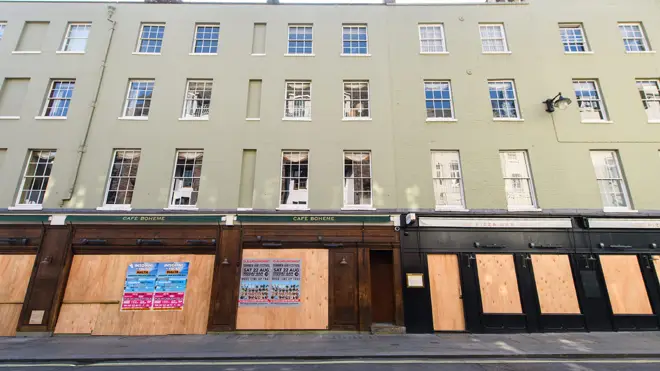
Ian Payne 4am - 7am
19 June 2020, 06:14

More than 50 unemployed people are chasing every vacancy in parts of the UK, a study has suggested.
The worst-hit include Broxtowe, Bolsover, Rhondda and Telford, according to the research.
Former industrial and inner city areas are seeing an average of 20 people claiming unemployment-related benefits for every job vacancy, up from around four people per vacancy before the coronavirus crisis began, said the report.
By contrast, in more affluent areas of England it is estimated there are on average five unemployed people chasing every job, said the Institute for Employment Studies (IES).
Some areas have three or fewer unemployed people per vacancy, including Kensington and Chelsea in London, Chichester, and Lincoln, said the report.
The study also indicated there were tentative signs that the hiring market may be starting to recover, with the number of newly notified vacancies in the second week of June reaching 106,000, nearly double the number for the last week of May.
The report said this is just one third of the number of new vacancies notified in the same week last year.
More than a third of all vacancies advertised are now in health, education and social work, compared with just one in five before the crisis began.
Tony Wilson, director of the IES, said: "This crisis has affected all parts of the economy, but it's clear that it is hitting some places harder than others.
"Many of these areas were struggling before this crisis began and are in even more trouble now. We need to be doing much more both to support employment demand in the short term - for example by cutting employer National Insurance - and in the longer term to support new industries and jobs.
"There are tentative signs that hiring may now be starting to pick up as businesses start to reopen, but these are very early signs.
"New vacancies are still at barely a third of the levels they were a year ago, and there's a lot of people working fewer hours than they'd want or wondering if they will have jobs to go back to after furlough."
Dave Innes, head of economics at the Joseph Rowntree Foundation, which funded the study, said: "This research shows parts of the economy where workers are at the highest risk of poverty, such as restaurants and non-food retail, are being hardest hit by the outbreak, and areas of the country where people were already held back are falling even further behind.
"People who were already struggling to get by may find their hours are cut, or their jobs lost altogether at a time when vacancies are down significantly. As the furlough scheme winds down, unemployment is only likely to increase.
"As the Government focuses on restarting the economy and mitigating the economic impact of coronavirus, it has to be ambitious in the size and scope of its interventions to address these challenges."
Former business secretary Sir Vince Cable said: "This confirms what was suspected - that the emerging unemployment crisis is shaping up to be worse than anything experienced in living memory and worse than the 1980s.
"We haven't seen anything like the worst which will come between August and October. Unsurprisingly the 'left behind' areas are worst affected.
"It is imperative that the Government soon comes up with a comprehensive plan involving continued economic stimulus, support for new jobs through NIC cuts, large-scale public works and house building working with local authorities, guarantees of a job or education or training for unemployed young people, scaled-up adult education and reskilling programmes."
Minister for employment Mims Davies said: "We know it's a challenging jobs market for many at the moment and some sectors have been hit particularly hard. That's why we've taken unprecedented action to support our economy during this emergency, protecting millions of jobs and thousands of businesses through the furlough scheme, grants, loans and tax cuts.
"Our Work Coaches across the country, in coastal, rural and urban areas are helping people add to their skills and enter into work as we move Britain into recovery. And this Government's commitment to levelling up opportunity across communities remains as steadfast as ever and will be at the heart of the revival."